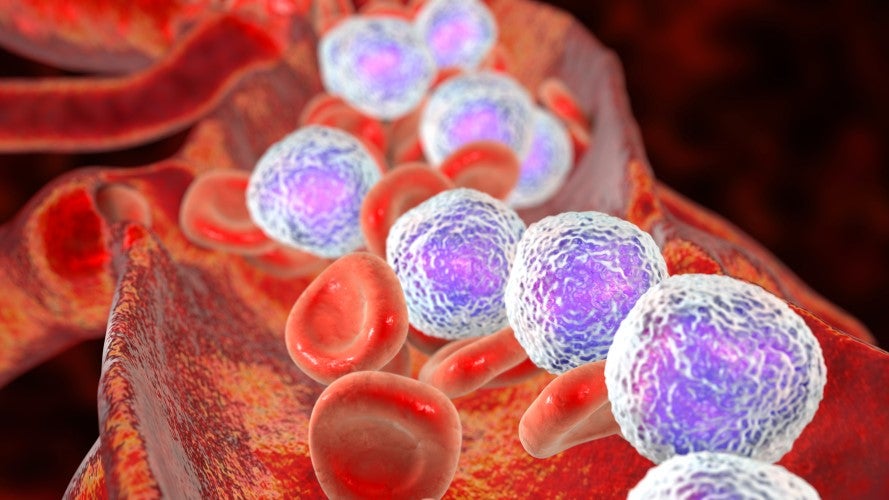
The European Commission (EC) has approved Enrylaze (recombinant Erwinia asparaginase or crisantaspase) as an add-on therapy with chemotherapy for treating acute lymphoblastic leukaemia (ALL) and lymphoblastic lymphoma (LBL).
The Jazz Pharmaceuticals drug was approved for use in both adult and paediatric (aged 1 month and older) populations who are hypersensitive to or have a silent inactivation of E. coli-derived asparaginase, which has anti-tumour activity.
Enrylaze, sold as RylaZe in the US and Canada, was approved by the US Food and Drug Administration (FDA) in 2021.
“Asparaginase is a core component of multi-agent chemotherapeutic regimens for the treatment of ALL, however, up to 30% of patients develop hypersensitivity to E. coli-derived asparaginase, resulting in a delay or disruption in treatment,” said Professor Carmelo Rizzari, Head of the Paediatric Haematology Oncology Unit at the Foundation IRCCS San Gerardo dei Tintori, Monza (Italy), in a 21 September announcement accompanying the approval.
“The ability to complete a full course of asparaginase treatment is of critical importance when treating ALL and LBL, as it is strongly linked to improved outcomes for patients. The approval of Enrylaze now provides an important option to support patients in completing their planned asparaginase treatment regimen.”
Enrylaze is administered every 48 hours either intravenously or as an intramuscular injection. GlobalData forecasts the drug to generate $521m in 2029.
GlobalData is the parent company of Pharmaceutical Technology.
EC approval data
The EC approval was based on the Phase II/III trial data which evaluated both intravenous and intramuscular formulations of Enrylaze. The data demonstrated that the drug achieved and maintained nadir serum asparaginase activity (NSAA) levels of more than or equal to 0.1 U/mL, which is considered to be the therapeutic threshold of enzymatic activity.
Of the 228 patients enrolled in the trial, 89.8% and 40% of the patients maintained NSSA levels of more than or equal to 0.1 U/mL for 48 and 72 hours with intravenous Enrylaze, respectively. The same NSSA levels were maintained in 95.9% and 89.8% of patients on intramuscular Enrylaze for 48 and 72 hours, respectively.
The commonly observed serious treatment-associated adverse reactions include febrile neutropenia, pyrexia, vomiting, sepsis, among others.
Other drugs in Jazz Pharma’s pipeline include T-type calcium channel targeting neurological drug, suvecaltamide hydrochloride (JZP-385), which is being evaluated for the treatment of narcolepsy, absence seizures, and epilepsy.
